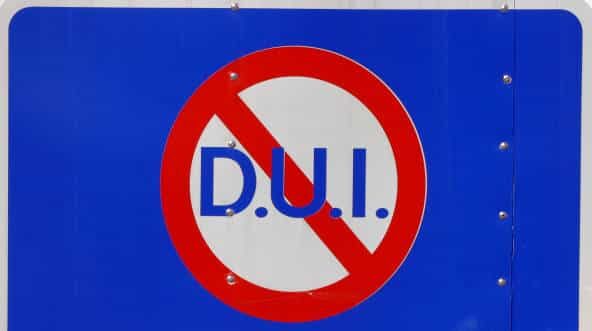Driving under the influence (DUI) is a serious offense in California, carrying consequences that can impact your life for years. If you have been convicted of a DUI, you may be wondering: how long does a DUI stay on your record in California? The answer depends on whether you are referring to your criminal record or your driving record.
This article will break down the key aspects of DUI records, including how long a DUI remains visible, how it affects your future, and whether there are any options for clearing your record.
How Long Does a DUI Stay on Your Criminal Record?
A DUI conviction in California is a criminal offense, meaning it becomes part of your permanent criminal record. A DUI typically stays on your criminal record indefinitely unless you take action to have it expunged.
California law allows individuals who have completed probation to file for an expungement under Penal Code 1203.4. If granted, an expungement removes the conviction from public records, but law enforcement and the court system can still see it. Additionally, an expunged DUI cannot be used against you in most employment situations, though it may still be considered in professional licensing matters.
How Long Does a DUI Stay on Your Driving Record?
When it comes to your driving record, the California Department of Motor Vehicles (DMV) keeps a DUI on file for ten years. This ten-year period starts from the date of your arrest, not the date of conviction. During this time, the DUI can impact your car insurance rates, eligibility for a commercial driver’s license, and potential penalties for future traffic offenses.
Unlike a criminal record, there is no way to expunge a DUI from your driving record. After ten years, the DUI is automatically removed from your DMV record.
How a DUI Affects Your Insurance Rates
One of the most immediate financial consequences of a DUI is its impact on your car insurance. Insurance companies consider DUI offenders high-risk drivers, often leading to significantly higher premiums.Some providers could deny you coverage altogether.
In California, you may be required to obtain an SR-22 certificate—a special insurance policy proving that you meet the state’s minimum coverage requirements. An SR-22 is typically required for three years following a DUI conviction. During this period, your insurance rates will likely remain elevated, but they may gradually decrease if you maintain a clean driving record.
Can a DUI Affect Future Employment?
A DUI conviction on your criminal record can affect employment opportunities, especially if your job involves driving. Many employers conduct background checks, and a DUI may raise concerns about reliability and safety.
However, once a DUI is expunged, California law prohibits employers from using it against you in most hiring decisions. If you are applying for a job that requires driving, a potential employer may still consider your DUI even after expungement.
What About Professional Licenses?
If you hold a professional license or are applying for one, a DUI can create challenges. Licensing boards for professions such as law, medicine, and real estate often review criminal records when making licensing decisions. Some boards may require you to disclose your DUI conviction, while others may conduct background checks to verify your history.
An expunged DUI does not necessarily prevent a licensing board from seeing the conviction, but it may help demonstrate rehabilitation and reduce its impact on your career.
How a DUI Affects Future DUI Charges
California law enforces a ten-year lookback period for DUI convictions. This means that if you are arrested for another DUI within ten years of a prior offense, it will be treated as a second offense, leading to harsher penalties.
Second and subsequent DUI offenses carry increased fines, longer license suspensions, and mandatory jail time. If more than ten years have passed since your previous DUI, any new offense will be treated as a first-time DUI rather than a repeat offense.
Can You Get a DUI Off Your Record?
Many people ask, how long does a DUI stay on your record, and is there a way to remove it? While a DUI remains on your DMV record for ten years, you may be able to clear your criminal record through expungement.
To be considered for an expungement in California, you need to fulfill certain requirements.
- Successfully complete probation (if required).
- Not be facing any new criminal charges.
- Petition the court for expungement.
If granted, the court will dismiss your DUI conviction, allowing you to legally state that you have not been convicted of a crime in most situations.
Steps to Take After a DUI Conviction
If you have been convicted of a DUI, there are several steps you can take to mitigate the long-term consequences:
- Complete all court requirements. This includes paying fines, attending DUI school, and fulfilling any probation requirements.
- Maintain a clean driving record. Avoid traffic violations and other infractions to demonstrate responsible behavior.
- Consider an expungement. Once you complete probation, consult a DUI defense attorney to explore your options for expungement.
- Monitor your insurance options. Shop around for better insurance rates after completing the required SR-22 period.
Conclusion
A DUI conviction in California has long-term consequences, but understanding how it affects your criminal and driving records can help you make informed decisions about your future. How long does a DUI stay on your record? For your criminal record, it remains indefinitely unless expunged. For your driving record, it lasts ten years before automatically being removed.
If you are facing DUI charges or need assistance with clearing your record, David P. Shapiro Criminal Defense Attorneys can help you navigate the legal system and work toward the best possible outcome. Contact our team today to discuss your case and explore your options.


